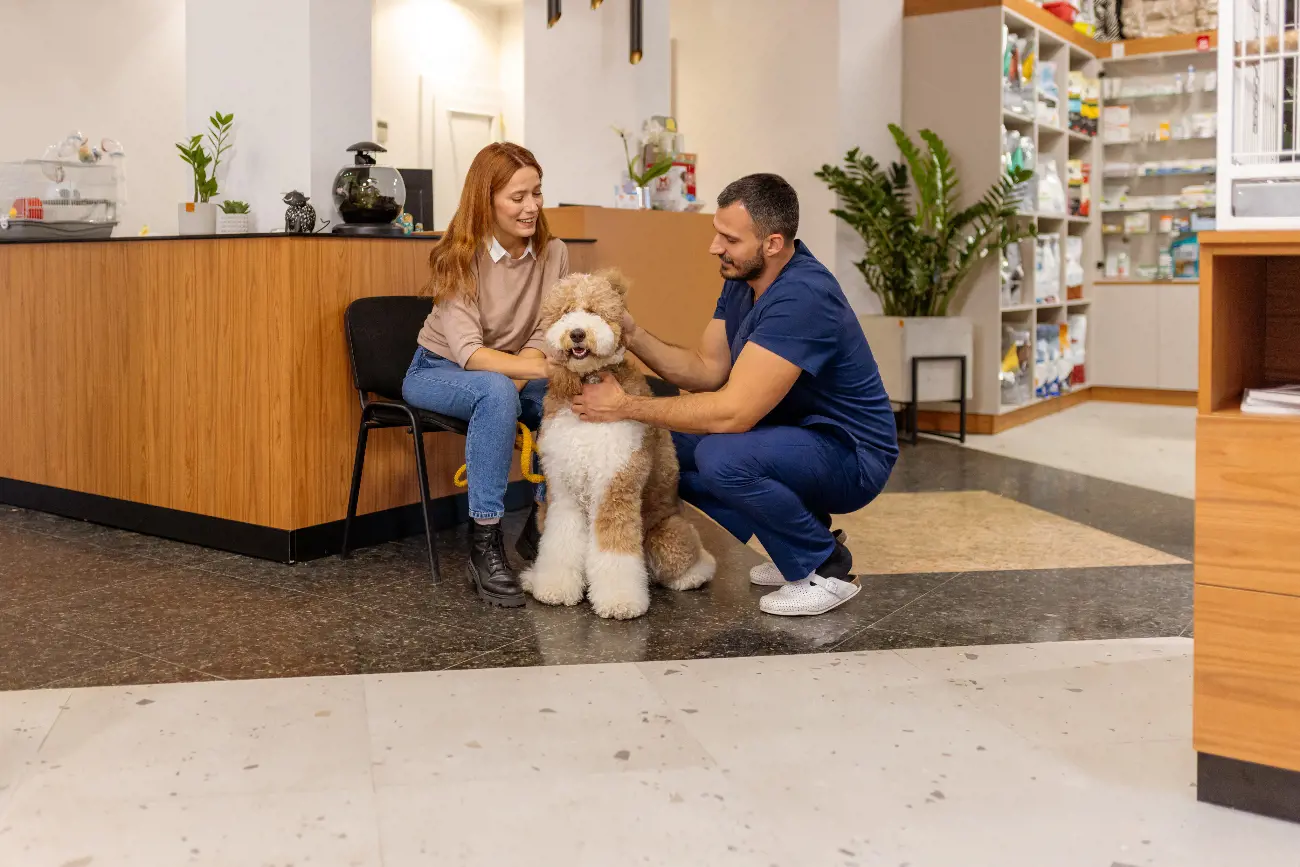Bed sharing with your dog may help you sleep better
11th June, 2025

Sharing a bed with your dog can be a comforting experience, but it also raises questions about the overall home sleep environment. Many pet owners wonder if their furry friends affect their sleep quality and patterns.
Is your dog allowed on (or even in) your bed at night? If so, we have some good news: new research has found that co-sleeping with your dog is actually good for you.
Studies have shown that co-sleeping with pets can influence the atmosphere of the sleeping area, impacting stress levels and sleep behaviours.
Moreover, the presence of pets can positively influence human health. Close interactions with pets have been shown to boost the immune system and reduce the development of allergies, highlighting the beneficial effects pets can have on physical well-being and social connectivity.
Sharing a bed with your furry friend can be a unique experience, offering numerous benefits for both pet owners and their canine companions. However, it’s important to weigh the pros and cons before deciding to co-sleep with your dog.
In this article, we’ll delve into the benefits of co-sleeping with your dog, including reduced stress and anxiety, improved emotional health, and lower blood pressure. We’ll also discuss the challenges of bed sharing, such as disturbed sleep and pet sleep patterns.
Benefits of co-sleeping with your dog
Co-sleeping with your dog can have a significant impact on your sleep quality and overall well-being. Here are some benefits of sharing a bed with your furry friend:
Reduces stress and anxiety
Sleeping with your dog can help reduce stress and anxiety levels by releasing oxytocin, also known as the “love hormone.” Oxytocin promotes relaxation and reduces stress levels, making it easier to fall asleep and stay asleep. The gentle presence of your dog can provide emotional support and companionship, helping to alleviate anxiety and stress.
Improves emotional health and lowers blood pressure
Co-sleeping with your dog can also improve your emotional health and lower your blood pressure. The emotional support and companionship provided by your dog can help reduce symptoms of depression and anxiety, leading to improved emotional health. Furthermore, the reduced stress and anxiety levels can help lower your blood pressure, reducing the risk of sleep apnea and other cardiovascular diseases.
Research that supports co-sharing your bed with your pet
The study looked at how people share their beds and bedrooms with their dogs, as well as their impact on human sleep quality.
Of the 1,000 people who took part in the study, nearly half (49%) reported sleeping with their dog in or on their bed. Another 20% said their dog slept in the same room but not on the bed, and in the remaining 31% of households their dog slept outside the bedroom.
Older participants, single people and those with smaller dogs were more likely to share their beds with their dogs. Bed size also impacted the likelihood of bed sharing.
Heat map images revealed that when two people co-slept with a dog in a double, queen or king size bed, the dog tended to sleep at the participants' feet or in the middle of the bed, “presumably where there is the most available space,” said study leader Christy L. Hoffman from Canisius College in New York.
In situations where one person co-slept with a dog in a double, queen or king size bed, dogs mostly slept at human chest level on the bed. For participants who co-slept on a single bed, dogs most commonly slept on the floor beside the bed. When dogs did sleep on a single bed, they typically slept at human chest level.
Nearly a third of the dogs that snuggled alongside their owners slept under the covers; the rest bedded down on top of the covers.
Asked about the impact of co-sleeping on their sleep quality, almost two thirds (65.6%) of participants indicated that their dog “rarely” or “never” disturbs their sleep.
The study, published in the Human Animal Interaction Bulletin, concludes: “We found no association between whether the dog slept on the bed and self-reported sleep quality. However, participants whose dog slept somewhere other than their owner's bed were 1.45 times more likely to report frequently waking up tired.
“Bed sharing appears unlikely to impact sleep quality negatively in any meaningful way. In fact, in many cases, dog(s) in the bed may facilitate a more restful night's sleep than when they sleep elsewhere.”
Challenges of bed sharing
While co-sleeping with your dog can have numerous benefits, it’s necessary to consider the challenges of bed sharing. Sharing a bed with your canine companion can strengthen the bond between you and your pet, providing a sense of security and comfort. Many pet owners believe that having their dog close by can enhance relaxation and reduce stress, contributing positively to overall sleep health.
However, it's important to consider that while co-sleeping with a dog can promote relaxation, research indicates it may also disrupt sleep patterns and lead to feeling more fatigued. Here are some potential drawbacks to consider:
Disturbed sleep and pet sleep patterns
Sharing a bed with your dog can disrupt your sleep patterns, especially if your dog is restless or has a different sleep schedule. Dogs, especially puppies, may require more attention and exercise during the night, leading to disturbed sleep. Additionally, dogs may have different sleep patterns than humans, which can affect the quality of your sleep.
To minimise the impact of disturbed sleep, it’s important to establish a consistent bedtime routine for your dog and ensure that your bed is large enough to accommodate both you and your dog comfortably.
Regular exercise and training can also help regulate your dog’s sleep patterns, reducing the likelihood of disturbed sleep. Providing your dog with their own sleeping space can help mitigate these disturbances, ensuring a better night's sleep for both you and your pet.
While the companionship of your dog during sleep can be enjoyable, it may also lead to negative effects on the quality of sleep and overall health. Maintaining good sleep hygiene by keeping a clean and separate sleeping environment can significantly improve sleep quality and reduce potential health risks.
How to maintain your bed when bedsharing with pets
Pet hair can accumulate in the sleeping area and potentially trigger allergic reactions, affecting sleep quality.
Regularly washing bed sheets is important to maintaining hygiene, especially in households with pets. Bed sheets can quickly accumulate germs, bacteria, and dirt from pets, so a weekly washing schedule is recommended to ensure a clean sleeping environment.
Protect your pet with dog insurance from Purely Pets! Benefits include online claims management and access to 24-hour vet advice from Joii for any queries regarding your pet’s health.
Helpful Pages
Recent Posts

How to groom your cat properly
09/01/26Pet Insurance Quote
- 98% claims paid *
- Claims paid directly to vets
- 24/7 vet video consultations
- Interest free monthly payments



